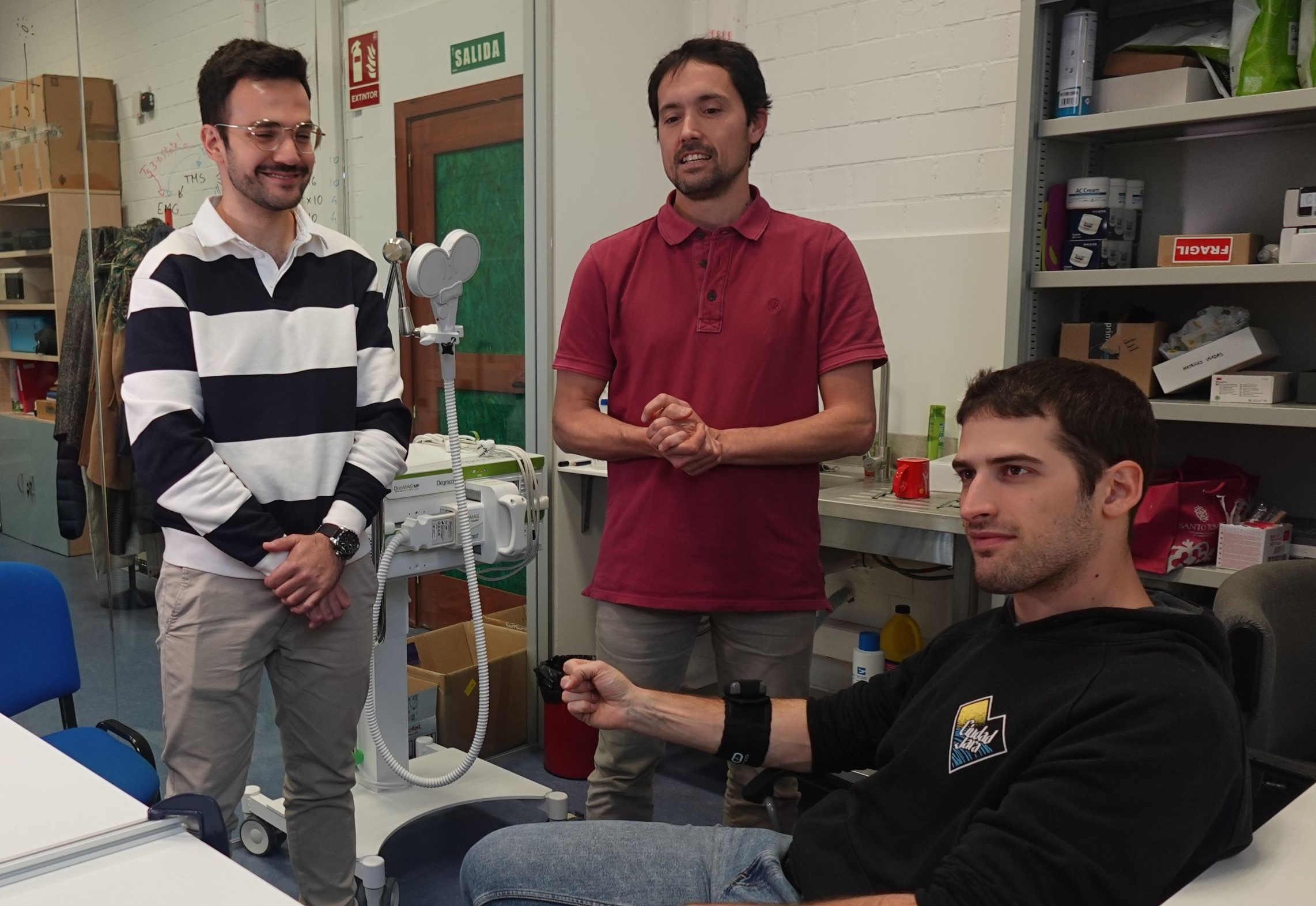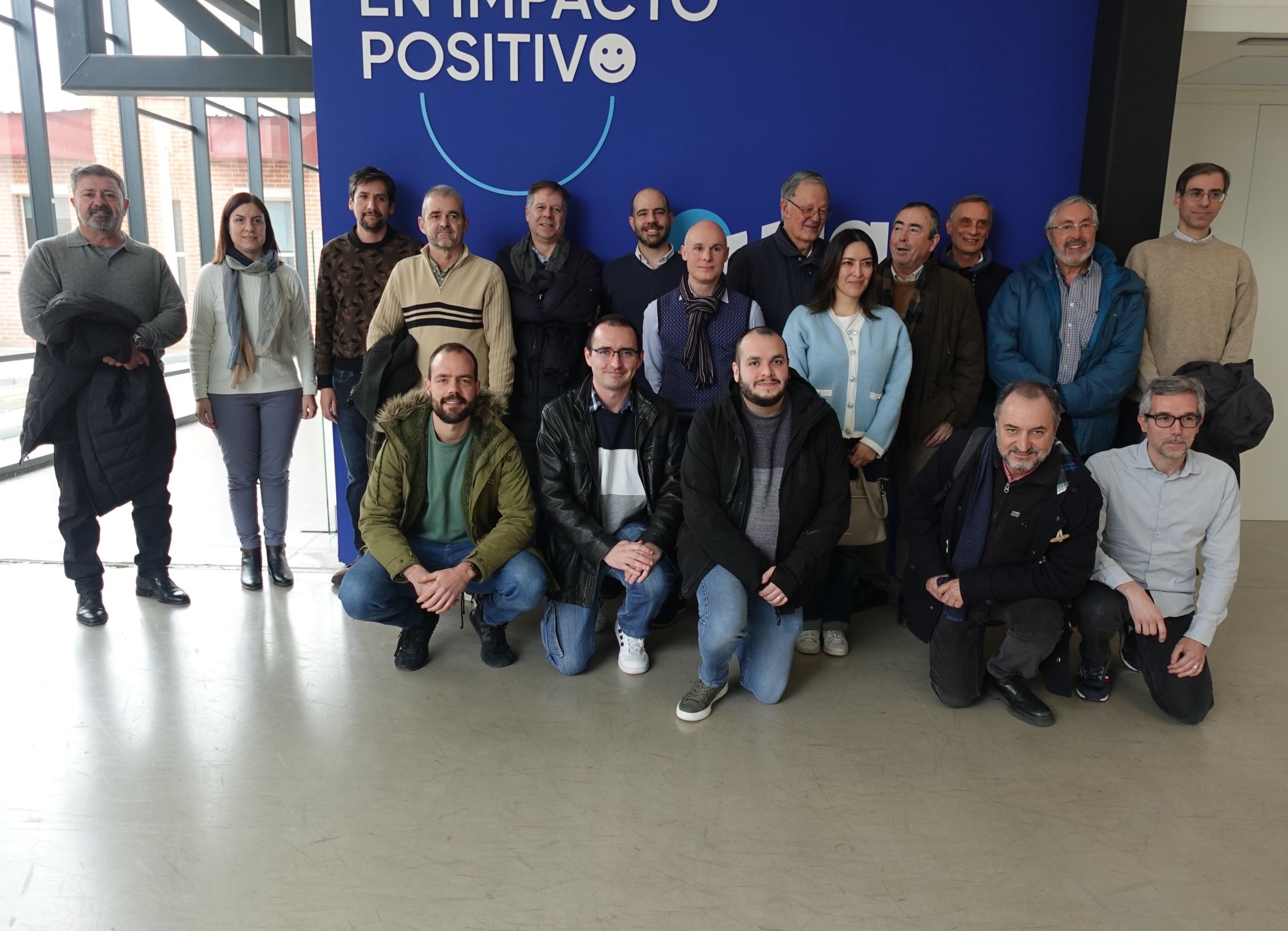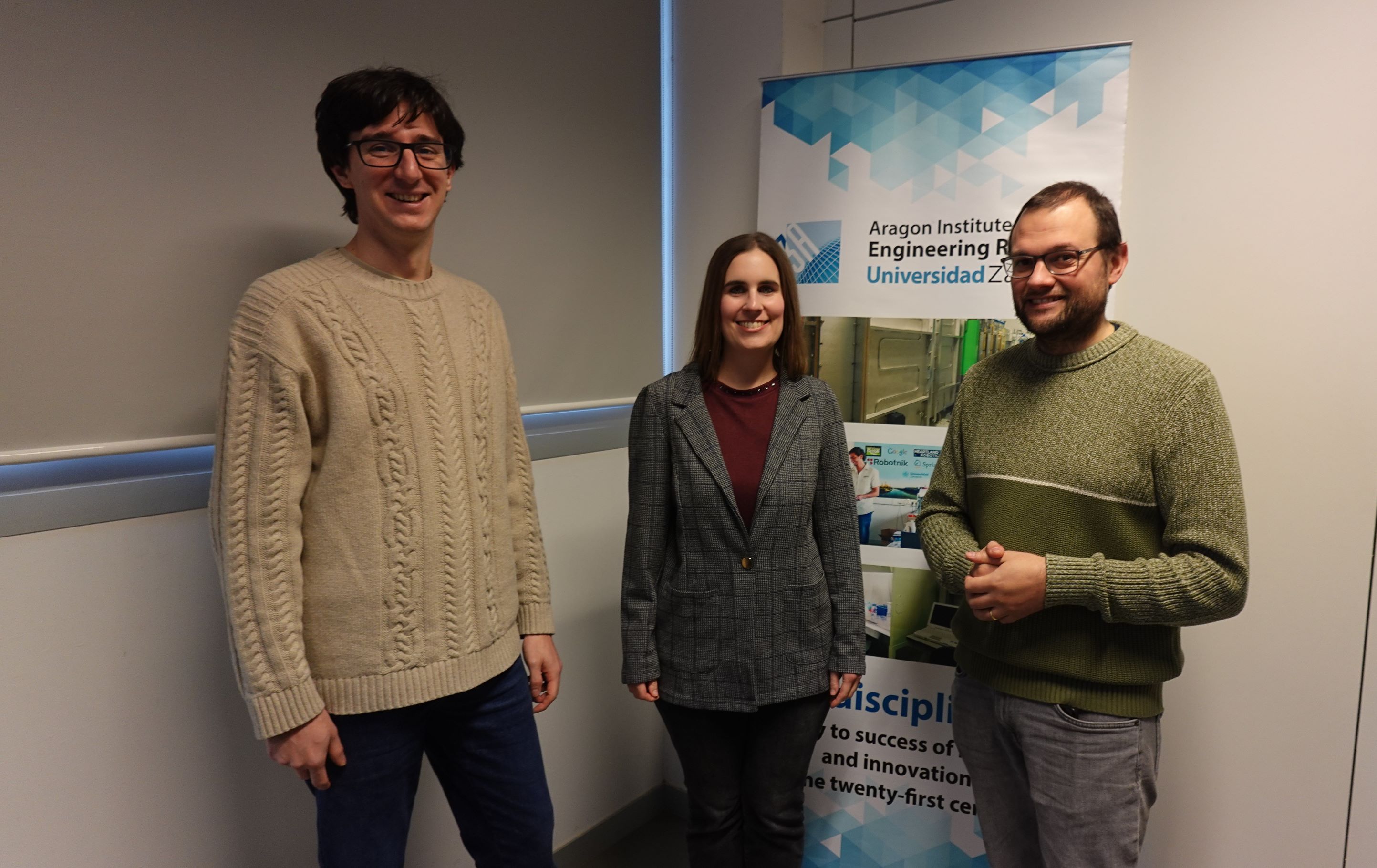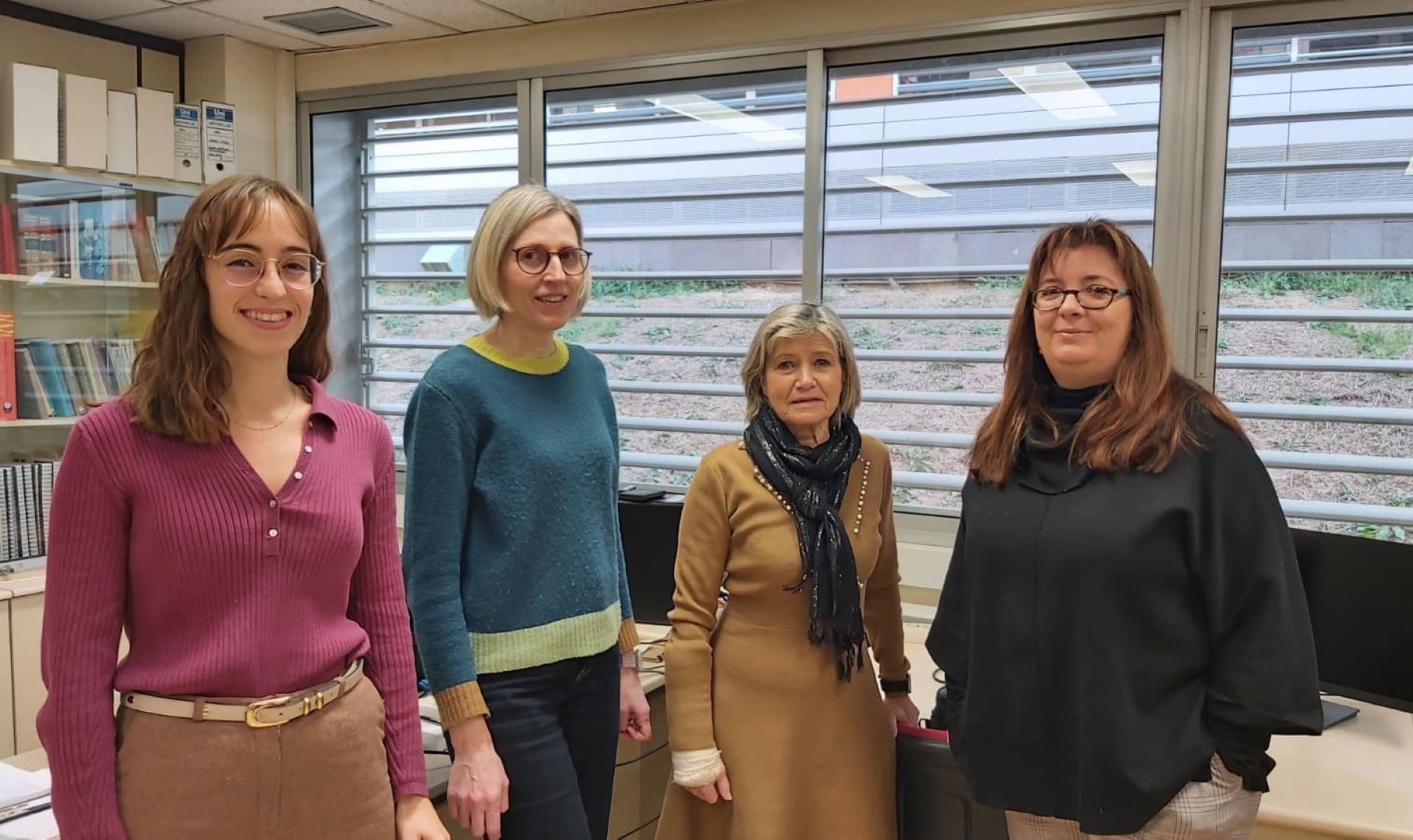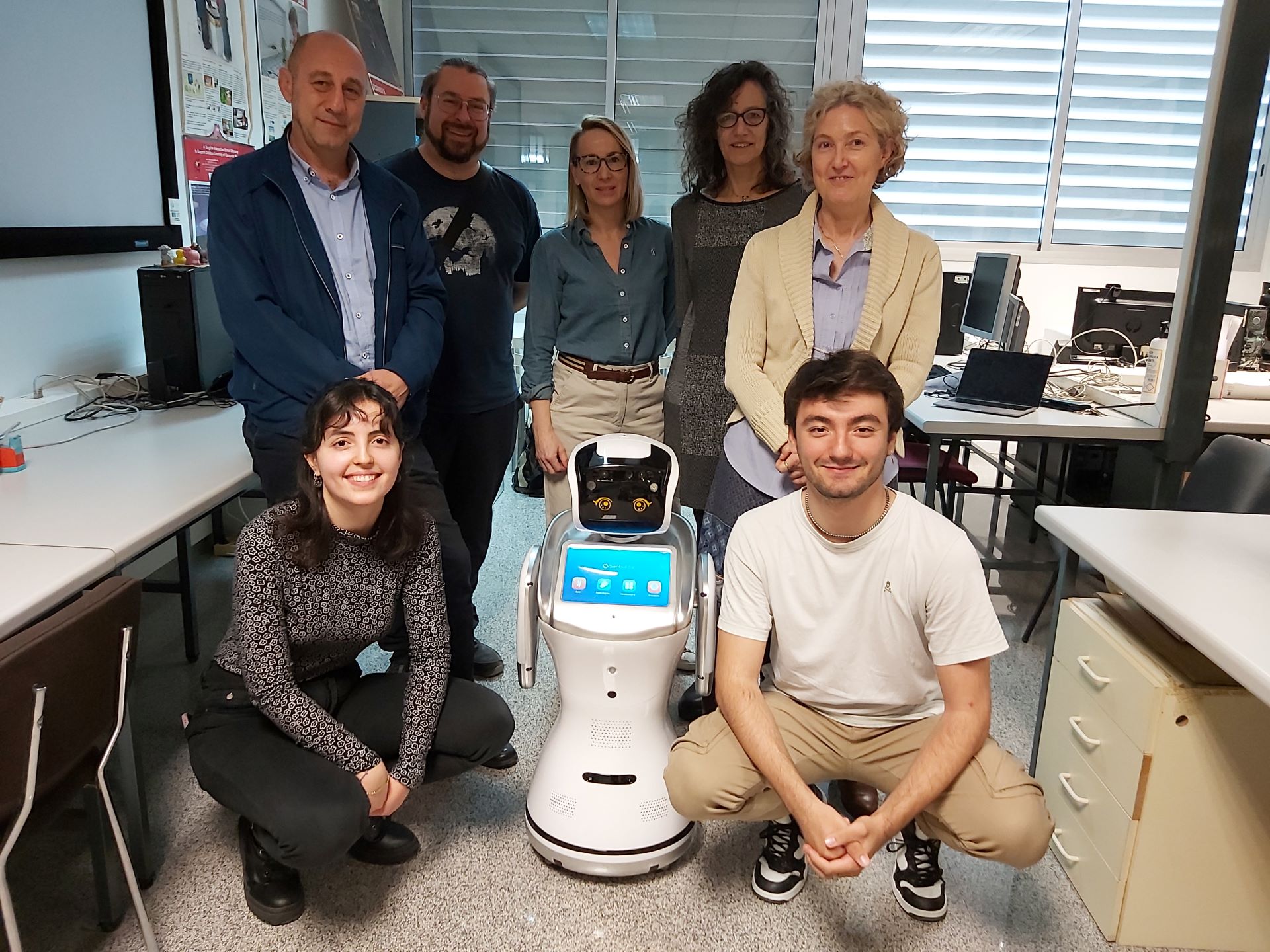
Researchers from the AffectiveLab group of the I3A and the Faculty of Education of the University of Zaragoza met yesterday with representatives of the Huesca Planetarium at the Río Ebro Campus to show them the lines of work they have underway and to study the possibility of collaborating within the framework of their national research project in the area of social robots. This is the PLEISAR project, a national project coordinated by the group with the participation of researchers from the universities of Granada, the Balearic Islands and La Laguna, and focused on the use of interactive social agents that promote communication and combat isolation.
The meeting in Zaragoza comes after a first meeting held at the Planetarium itself, in Huesca. Here they were able to get to know the social robot acquired thanks to the national project with which they are starting to work. Eva Cerezo, head of the group AffectiveLab, framed the collaboration within the group's track record in transferring research results to society, which has led to numerous collaborations with social entities in the three Aragonese provinces.
In recent years, part of the group's research work has focused on the design of intergenerational family activities, always with "an educational and therapeutic component, and adapted to people's needs". He also stressed that in this type of activity, "children act as facilitators to overcome the barriers that technology poses to the elderly, helping to increase their acceptance". He also stressed that "the possibility of making interventions in real environments with users is key in interaction research", the group's field of work.
For his part, the director of the Planetarium, Jesús Pérez Navasa, stressed the importance of actions for children, the role of robots for a space like the Planetarium where 25,000 people pass through every year, in addition to the 11,000 at the Museum of Mathematics. In this way, "the participation of people who do not normally use technology could be encouraged, and it would be a way of making it easier for them to approach it".
The demonstration of the robot's functionalities was carried out by two students from the School of Engineering and Architecture, Adrián Arribas and Loreto Matinero, who are doing their Final Degree Project (TFG) in the AffectiveLab group.
In the photograph: Jesús Pérez Navasa, director of the Huesca Planetarium, David Vicente, planetarist and science populariser, Sandra Vázquez, lecturer at the Faculty of Education, Sandra Baldasarri and Eva Cerezo, AffectiveLab researchers, and Loreto Matinero and Adrián Arribas, EINA students.
